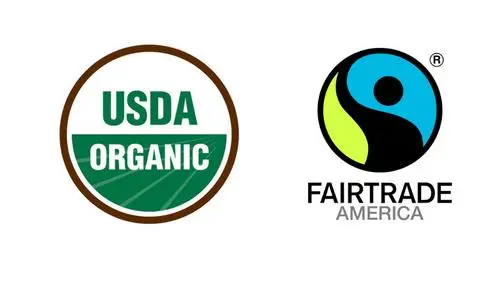What is Local?
To NC State Dining, we define local as anything produced within 500 miles of the University. Within this 500 mile radius we are able to source over 1 million pounds of local produce and products for over 50 different vendors/farms annually.
Responsible sourcing has always been a strong tenet of NC State Dining’s Sustainability efforts. Starting in Fall of 2023, we decided to focus on a new system for tracking and managing local purchasing to allow for continued improvement. To spearhead this movement, we hired a Campus As A Classroom intern in Fall of 2023 to help compile, analyze and report on our purchasing data. After this student (Karthik Jayakumar) graduated in Fall 2024, we decided to bring him on to our team part-time as a temp employee. He is now in the final stages of development for an interactive local purchasing dashboard that we hope to share with the community soon. This work has helped us to improve our local purchasing percentage from 12.38% in FY23 to 13.23% in FY24 representing a 6.87% increase.
FY24 Local Purchases: 13.23% FY23 Local Purchases: 12.38%
NC State Agroecology Education Farm
NC State Dining is a proud partner of NC State’s Agroecology Education Farm, which provides hands-on education regarding sustainable agriculture to students, staff, faculty and the community. As part of this partnership, Dining provides funding for management of the farm, and in return, the farm supplies the Dining Halls with fresh, locally grown produce. In 2023 alone, the Agroecology Farm produced 5,371 pounds of produce for NC State’s dining halls.
“The Agroecology Education Farm is a special place where students interested in agriculture can learn how to grow food that their peers then get to eat at the dining halls,” says Sarah Snyder, Manager of the Agroecology Farm. “It is empowering to grow healthy, nutritious, organic food, and I love sharing that experience with others. The farm is the epitome of hands-on learning and local agriculture!”
Dining’s chefs collaborate closely with the farm each year to decide which crops to grow, with selections ranging from zucchini and cucumbers to okra and eggplants. Additionally, food waste from the dining halls is sent to the campus compost facility, where it is transformed into soil nutrients that support the farm’s crops. In this way, NC State Dining, the compost facility and the Agroecology Farm work together in a sustainable closed-loop system.
Visit their site to learn more.
US Foods
US Foods is an excellent resource for identifying local food on a scale that can be used in our on-campus dining units. They continue to grow their portfolio of products that are local, sustainable, or support well-being, and they work with North Carolina farmers and producers to increase the diversity and amount of local products they carry. NC State Dining meets regularly with its sustainability representatives to review local and sustainable food alternatives. US Foods also strives to improve the efficiencies of its facilities and fleet to help meet its greenhouse gas emissions reduction goals.
Visit their sustainability site to learn more.
Pick Local Fridays

NC State Dining is committed to purchasing local foods whenever possible to support North Carolina agriculture and minimize the resources required to bring products to campus. We track our local purchasing and work to maximize partnerships with companies and farms in our state. We highlight our suppliers at the entrance of campus dining halls, showing the companies we buy from and their locations relative to campus. Every Friday, we specifically highlight local produce items as part of our Local Friday initiative.
Got to Be NC
As our local connection to what is happening on the local food scene, Got to Be NC is a legacy partnership that helps us identify groups and companies that produce, manufacture, grow and package products in North Carolina. Got to be NC also connects our program with local partners interested in introducing NC products to campus.
Sustainable Seafood
Dining attempts to build seafood into our dining hall menus at least once a week. As part of this initiative, we always try our best to find seafood from sustainable sources. In FY24, we purchased over 20,000 pounds of sustainable seafood. A large percentage of this seafood is Marine Stewardship Council certified seafood. To learn more about the Marine Stewardship council; please visit their website at https://www.msc.org/en-us/what-we-are-doing/our-approach/the-blue-fish-label.

Rainforest Alliance Certified Coffee
All Caribou coffee as of 2012 is Rainforest Alliance Certified
Organic and Fair Trade Coffee
As part of their regular offerings, all Port City Java locations on campus have a freshly brewed Organic and Fairtrade coffee available on demand.